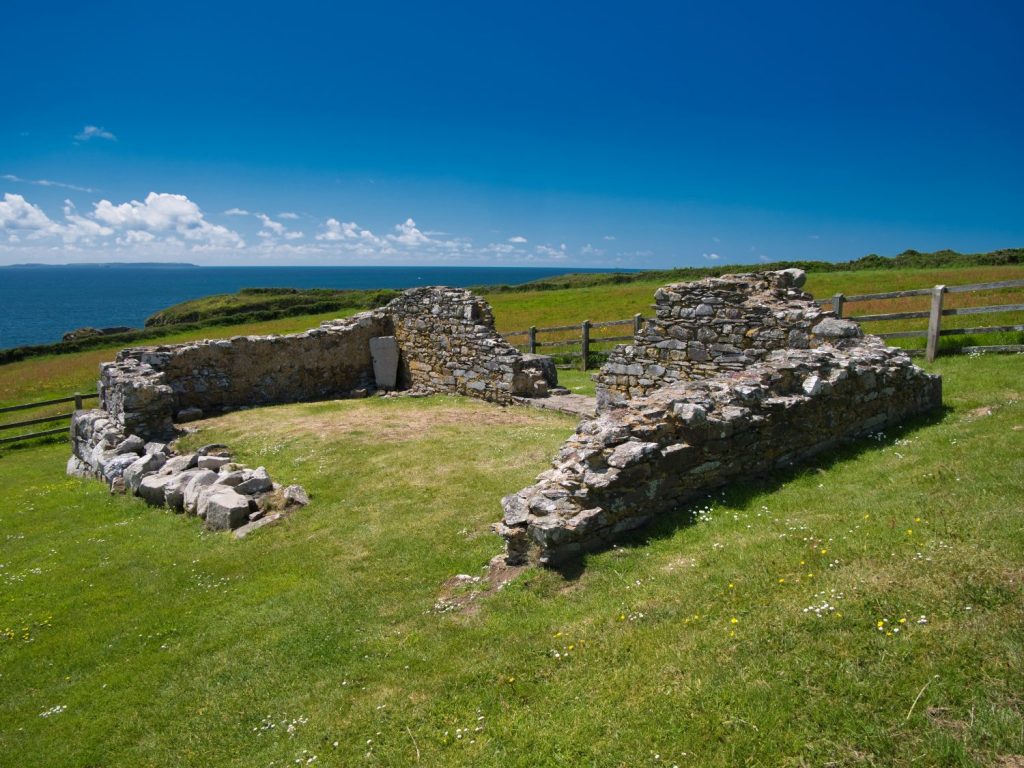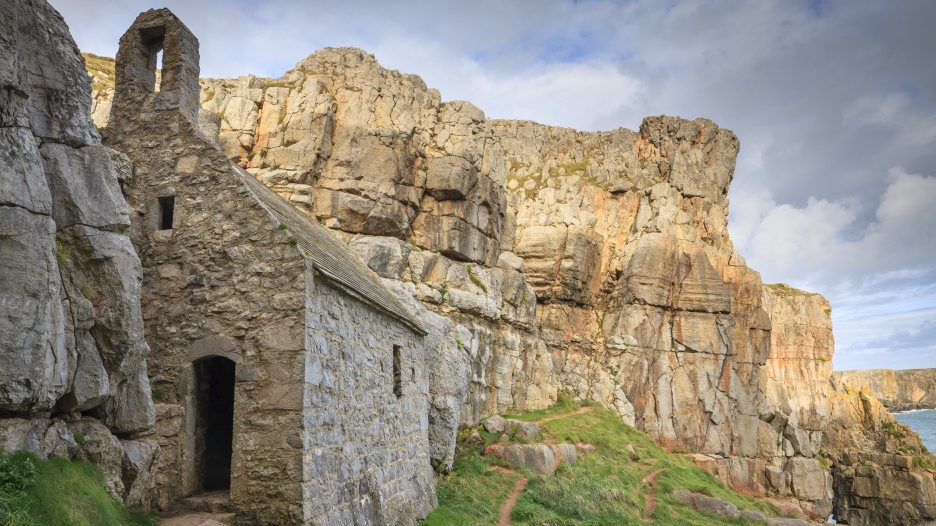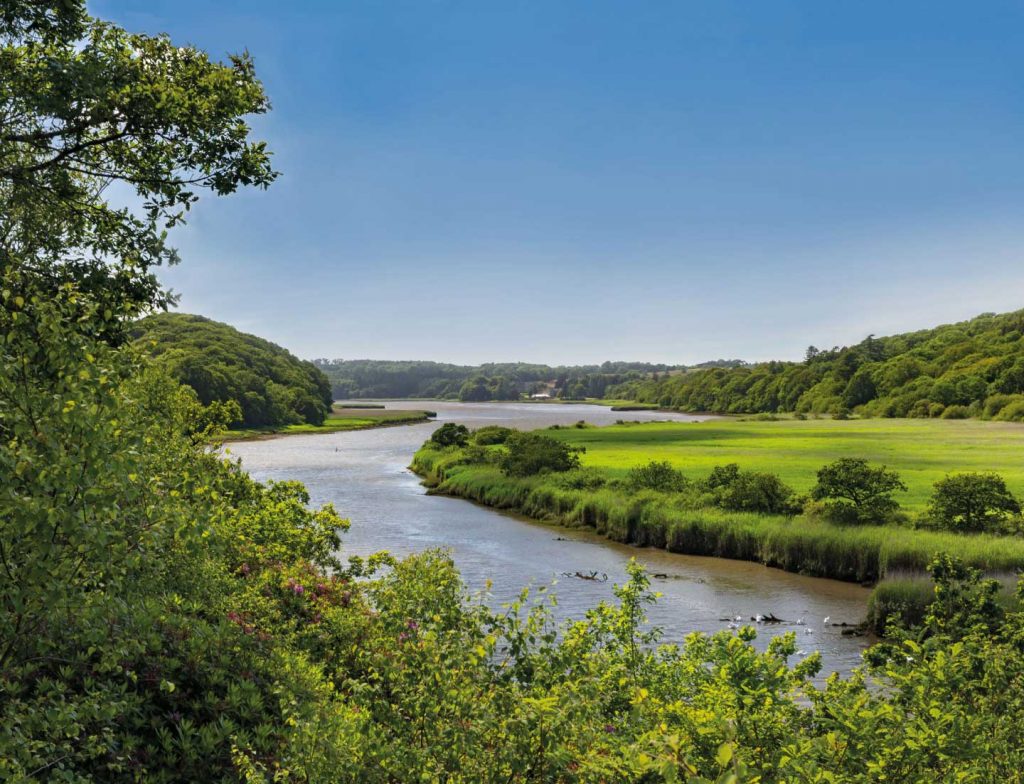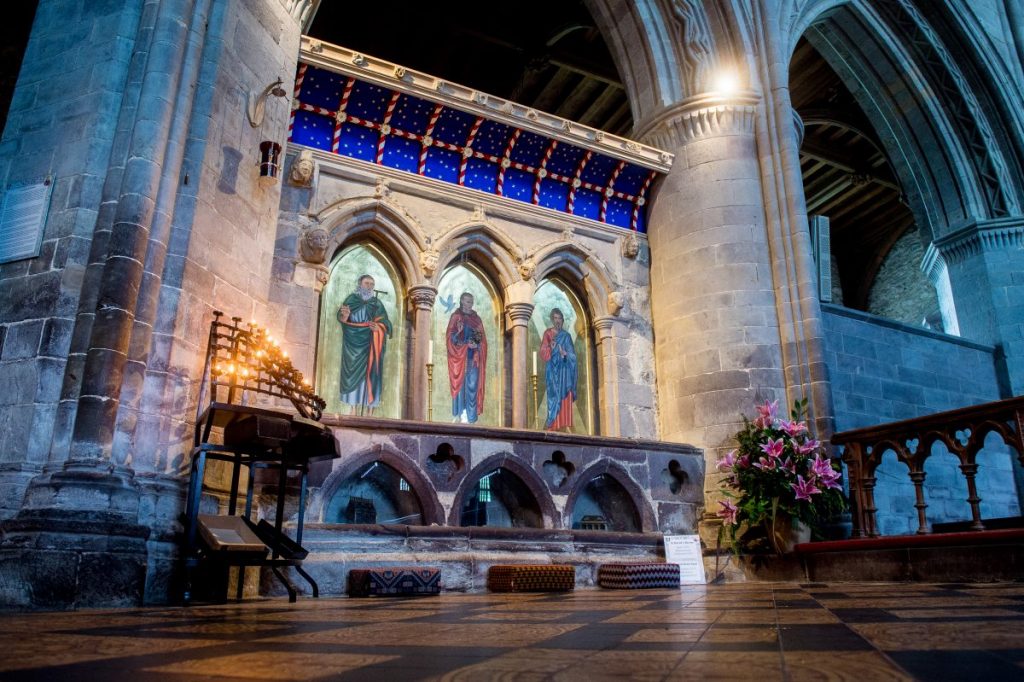How many years have you been driving past the signs on the outskirts of your town or village not knowing what the name means? Many of our Pembrokeshire place names have sprung from descriptive words of the area.
The place names across the National Park broadly divide into Welsh names and Anglo-Norman English names.
Llanrhian near St Davids, is a typical example of a Welsh name.
Llan means church or enclosure and Rhian comes from the name of a 6th century saint, meaning ‘church or settlement of St Rhian’.
Anglo-Norman settlements from the 11th century gave rise to many new places, often named after their founders and suffixed with ‘ton’ (town/farmstead). Thus Hodgeston actually means ‘Hodge’s Farm’ and was first mentioned in 1291.
Many hybrid names survive, garbled by mispronunciation, anglicisation and consequent misspelling. Lawrenny, for example, is a corruption of the Welsh Llawer-enni, meaning ‘bed of the River Enni’.
Here is a selection of local place names and their meanings
|
Place Name |
Meaning |
|
Abercastle |
Bay by the castle. |
|
Abereiddy |
Mouth of the River Eiddi (pronounced aber-eye-thee) |
|
Amroth |
Llanrath – Church near the Rath stream |
|
Angle |
Land in a corner or nook |
|
Bosherston |
Bosher’s Farm |
|
Boulston |
Bole’s Farm |
|
Broad Haven |
First mentioned 1602 |
|
Brynberian |
Orig Llyn-Berrian (Berrian’s pool) |
|
Caerfarchell |
Marchell’s Fort (pronounced Kya-far-cech) |
|
Caldey Island |
Scandinavian descent. ‘Cold Island’. Welsh alternative Ynys Byr – Island of Pyr, its first abbot |
|
Carew |
Welsh alternative Caeriw from Caerau – fort. |
|
Carew Newton |
Carew Newtown |
|
Castlemartin |
St Martin’s Castle |
|
Cresselly |
Croes- elli (pronounced cress-elly) |
|
Cresswell Quay |
Well where watercress grows |
|
Dale |
Place in the valley |
|
Dinas Cross |
Dinas – fort (pronounced deenas) |
|
Felindre Farchog |
Mill of the Lord (or knight) (pronounced velindra-varch-og) |
|
Haroldston West |
Harold’s Farm |
|
Hasguard |
Scandinavian ‘bus skar’ – house in the valley (pronounced haskerd) |
|
Herbrandston |
Herbrand’s Farm (locally pronounce harberston) |
|
Hodgeston |
Hodges Farm (locally pronounced hotson) |
|
Hook |
Angle of land |
|
Jameston |
James’ Farm |
|
Landshipping |
Long Shippon – cowhouse |
|
Lawrenny |
Llawr- enni – bed of the River Enni |
|
Little Haven |
First mentioned 1578 |
|
Llanrhian |
Church of St Rhian (pronounced llan-ryan) |
|
Llanwnda |
Gwyndaf’s church (pronounced llan-un-da) |
|
Lydstep |
Norse Lowde -hop – Lowde’s Bay |
|
Manorbier |
Maenor-pyr – manor of Pyr of Caldey Island) (pronounced manor-beer) |
|
Marloes |
Moel-Rhos (bare moor) |
|
Milton |
Mill Farm |
|
Middle Mill |
Felin ganol, belonging to the Bishop of St Davids by 1390 |
|
Minwear |
Obscure, possibly Welsh ‘Minwern – edge of the adder swamp (locally pronounced minner) |
|
Monington |
Mann’s Farm |
|
Moylegrove |
Orig Trwyddel – grove farm and by 1291 ‘Matilda’s Grove’ |
|
Mynachlogddu |
Black monastery (pronounced my-nach-log-thee) |
|
Nevern |
Nanhyfer – church by the River Nevern |
|
Newgale |
Obscure. Possible Irish name Neugwl, Gwynedd which has similar topography |
|
New Hedges |
First mentioned c 1773 |
|
Newport |
Welsh ‘Trefdaeth’ – beach town |
|
Nolton |
Old farm |
|
Pontfaen |
Stone bridge (pronounced pont-vine) |
|
Penally |
Penalun – Alun’s Headland (pronounced pen-alee) |
|
Penycwm |
Head of the valley (pronounced pen-eugh-coom) |
|
Pantglasier |
Glasier’s Bridge (pronounced pont glazier) |
|
Porthgain |
Bay of the river Cain (pronounced porth-gine) |
|
Roch |
Rock – on which castle stands (pronounced roach) |
|
Ramsey Island |
Either Hrafn’s Island after Norse person or Lramsa – Norse for wild garlic |
|
Rosebush |
From ‘Rhos’ (moor) and bush |
|
Sardis |
After the chapel name – Sardis was capital of the Lydian Empire |
|
Saundersfoot |
Foot of Alexander’s Hill |
|
Slebech |
Obscure |
|
Skokholm Island |
Norse – island in the sound |
|
Skomer Island |
Norse ‘Skalm’ and ‘ey’ – Cloven Island |
|
Solva |
Name taken from River Solfach |
|
St Brides |
Church of St Bridget |
|
St Davids |
After St David c 530-589 Welsh alternative Tyddewi from Welsh name Dewi Sant |
|
St Ishmaels |
Church of St Ishmael |
|
St Twynells |
Church of St Gwynog |
|
Stackpole |
Possible Norse. ‘Stakkr’ and ‘pollr’ – pool near the rockstack |
|
Talbenny |
Tal-y-benni – end of ridge |
|
Tenby |
Welsh alternative: Dinbych-y-pysgod fortress of the fish |
|
The Rhos |
Moor (locally pronounced the Ross) |
|
Trefin |
Possible Treddyn – farm on high ground (pronounced Treveen) |
|
Treteio |
Possibly derived from Tir-taenog – land assessed for tax (pronounced tre-tyo) |
|
Walton West |
Wale’s Farm |
|
Walwyn’s Castle |
Castle of Walwyn. Welsh alternative Castell Gwalchmai, named after a character from The Mabinogion |
|
Warren |
Possible corruption of Goteran – overflow of spring or well |
|
Whitchurch |
The white church |
| Wisemans Bridge |
Associated with Medieval Wiseman family |



